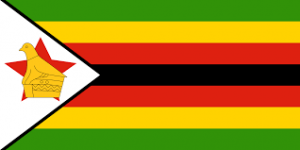Netherlands has unveiled a Euro 3,5 million ($3,9 million) fund to mitigate the effects of the El Nino induced drought through a number of strategies including providing crop and livestock inputs in the affected areas.

A total of seven non-governmental organisations namely; Plan International Zimbabwe, Terres De Homes, World Vision, International Rescue committee, Cordaid and ICCO/Act-Alliance have joined hands under Zimbabwe Joint Drought Response (ZIMJR) Initiative to implement the project.
Addressing journalists at the ZIMJR Press Briefing and official launch on Tuesday, Oxfam Zimbabwe country director Machinda Marongwe said all the local organisations are receiving support from the Dutch government to respond to the El Nino food crisis.
“Oxfam in Zimbabwe together with our partners are pleased to announce a Euro 3,5 million joint drought response project which is set to be implemented in several districts in Zimbabwe supported by Dutch Relief Alliance funded through the Dutch Relief Fund from the Ministry of Foreign Affairs in Netherlands.
“As Oxfam in Zimbabwe we are excited to lead in the implementation of this project and work together with our colleagues in the sector.
“The interventions are in the following categories: Food Security and Agriculture (food assistance through cash or direct food, crop and livestock inputs), nutrition (school supplementary feeding and support to maternal and neo-natal mothers), WASH (rehabilitation of water points, drilling of water point and hygiene promotion activities, non-food items distribution),” he said.
He said funding will be for a period of six months starting from the first of July 2016 to December 2016.
“The objective of the ZIMJR is to provide humanitarian assistance to the most vulnerable people affected by the drought and food security crisis in Zimbabwe, while at the same time promoting early recovery strategies to avoid dependencies and ensure that humanitarian assistance can be scaled down at the time of the next harvest.
“Funding will be for a period of six months starting from the first of July 2016 to December 2016. The response is looking at response and early recovery activities.
Mr Marongwe added that most interventions are taking place in Masvingo, Matabeleland North and Midlands, in addition to interventions in Mashonaland West, Matabeleland South and Manicaland.
“Prioritisation is based on ZIMVAC assessments carried out by Food and Nutrition Council of Zimbabwe and localised assessments done by the various agencies to complement ZIMVAC The programme is expected to reach out to more than 336 400 vulnerable people affected by drought in the targeted provinces and districts and will complement Government efforts to address food and nutrition insecurity and WASH issues caused by the El Nino crisis. We also hope that the programme will go a long way in building communities resilience capacity,” he said.

